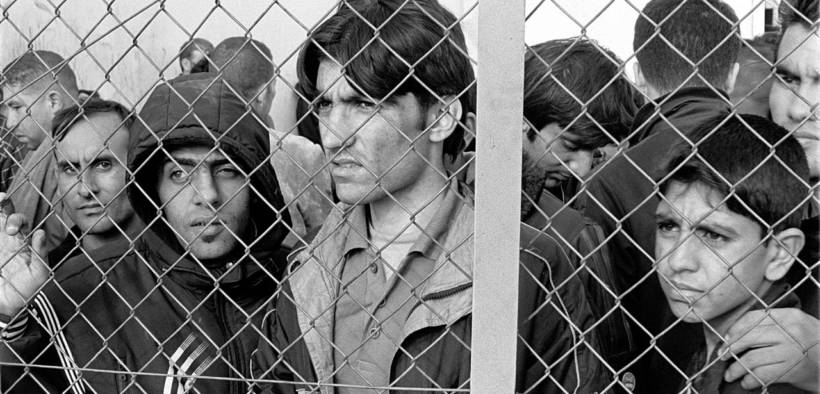Greek Citizens Revolt Against New Migrant Detention Centers

“Our great fear when passions are so high is that blood will be spilled.”
Police clashed with residents on the Greek islands of Lesbos and Chios Tuesday as the police deployed tear gas. The island residents were protesting the construction of new migrant detention centers on the islands, and protestors on Lesbos organized a general strike that is currently in effect.
A journalist on the ground told Al Jazeera, “they [the protestors] feel like the central Athens government is overriding their decision on how this should be dealt with. So, I would expect more resistance and more police and an increasingly tense situation.”
The local discontent stems from the growing numbers of refugees who have been left in limbo and encroached onto local’s property in a desperate attempt to find shelter. Refugees have been protesting against the substandard living conditions for months.
Currently, 19,000 refugees are being housed in a facility originally designated for 3,000 on the island of Lesbos. All five island detention centers are at least five times overcapacity.
Since 2019, United Nations High Commissioner for Refugees Filippo Grandi has been calling on the international community to improve the awful conditions in the camps.
“These living conditions need urgent improvement,” Grandi said of the camps, and he added that he was particularly worried about unaccompanied minors in the camp.
Islands turned Gulag Archipelago
The horrible conditions refugees and migrants face on the Greek islands mirror those of another migrant crisis half-way across the world.
Australia’s policy of detaining refugees and migrants on islands around the continent has drawn comparisons to a gulag archipelago.
The European Union made an agreement with Turkey in 2016 to take all migrants and refugees who arrived by boat to the Greek islands, however four years on, an inordinate amount of people remain in what once were asylum centers but now function as jails.
Due to long legal battles and ineffective migration policy, many refugees have remained stranded on the Greek islands waiting for their case to be determined rather than being given asylum in Europe or be sent to Turkey.
Australia has a similar policy in which they round up all migrants and refugees on boats and house them on surrounding island nations such as Nauru. There, migrants face shocking conditions as documented by Behrouz Boochani, a refugee who wrote a book about his experience in the island camps by using WhatsApp to send out his story.
Australia has hidden the appalling conditions and human rights violations far from its borders, and the EU attempted to achieve a similar outcome with the Turkey deal. But, as Greek authorities attempt to fix overcapacity problems on the Greek islands, residents have fought back.
Fighting the Government or Refugees?
The strong response from the Greek government has only strengthened the resolve of many residents to protest the construction of new camps.
Greek authorities have argued that the potential spread of the coronavirus has necessitated the construction of new camps.
But, Stephan Oberreit from Doctors Without Borders said, “we stand beside the local communities who oppose the creation of closed camps on the islands,” and argued that detention camps are not a solution.
While the European Union and the Greek government have transformed the Greek islands into open-air prisons, island residents have decided they have finally had enough.
Efstratios Tzimis, deputy mayor of Mytilene on Lesbos said, “they promised to decongest our isles but instead have simply delayed. And now, when they should be persuading us on the merits of these new camps by dispatching high-level officials, they send in riot police and resort to repression.”
While the Greek government has been slow to react, a proposed evacuation to mainland Europe is still fraught with problems including anti-migrant sentiment on the rise in many EU member-state’s governments.
With that said, the protests will continue and many on the ground fear they will become bloodier.
“Our great fear when passions are so high is that blood will be spilled,” said Tzimis, “it’s a very bad turn of events when Greeks turn against Greeks.”
















When all of Latin America, all of Africa, and half of Asia have migrated to the USA and the EU — what? Everything will be hunky-dory?